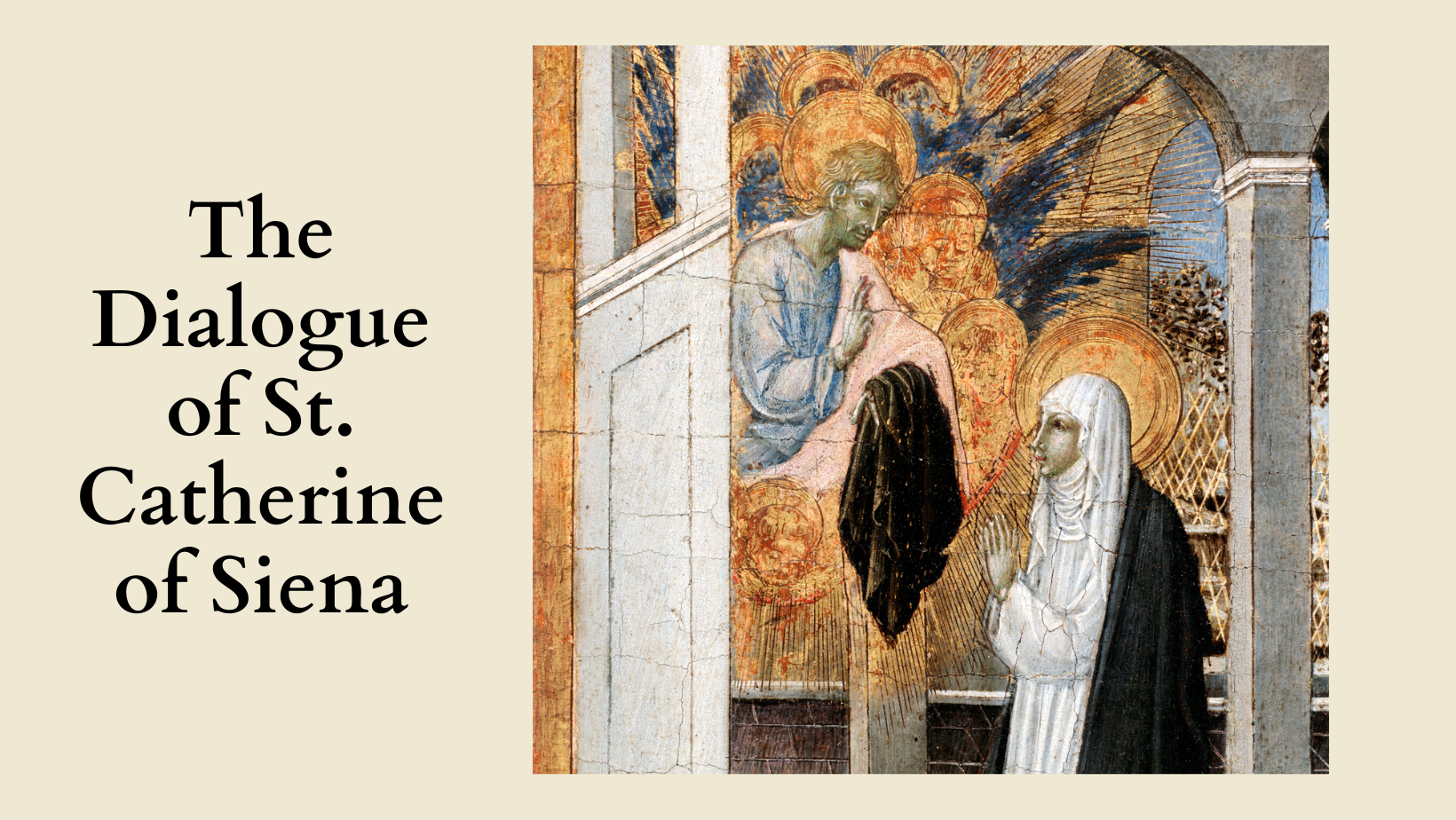St. Catherine of Siena, who lived in 14th-century Italy, experienced mystical visions and dictated these revelations into the book now known as the The Dialogue of St. Catherine of Siena. The book is thus a dialogue between St. Catherine and God the Father. Through this work, God reveals the spiritual life, emphasizing the need to pray constantly and develop virtue.
Click here to read a free pdf of the Dialogue of St. Catherine of Siena.
Excerpts from The Dialogue of St. Catherine of Siena
“I even give equally to the sinner and the righteous man, and often more to the sinner than to the righteous man, because the righteous man is able to endure privation, and I take from him the goods of the world that he may the more abundantly enjoy the goods of heaven.”
“Blessed she is through the union which she feels herself to have with Me, tasting the divine love; sorrowful through the offenses which she sees done to My goodness and greatness, for she has seen and tasted the bitterness of this in her self-knowledge, by which self-knowledge, together with her knowledge of Me, she arrived at the final stage.”
“They are like precious stones, and as such do they stand in My presence, because I have received their labor and poverty and the light which they shed with the odor of virtues in the mystic body of the holy Church. And in the life eternal I have placed them in the greatest dignity, and they receive blessing and glory in My sight, because they gave the example of an honorable and holy life, and with light administered the Light of the Body and Blood of My only- begotten Son, and all the Sacraments.”
“And these My anointed ones and ministers are peculiarly beloved by Me, on account of the dignity which I placed in them, and because this Treasure which I placed in their hands they did not hide through negligence and ignorance, but rather recognized it to be from Me, and exercised it with care and profound humility with true and real virtues.”


